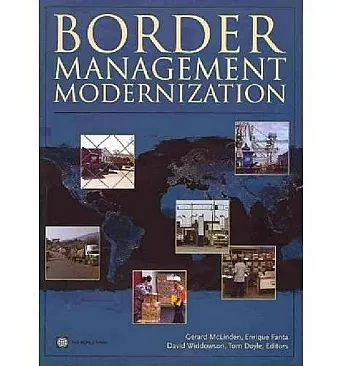Border Management Modernization
Tom Doyle editor Gerard McLinden editor Enrique Fanta editor David Widdowson editor
Format:Paperback
Publisher:World Bank Publications
Published:30th Nov '10
Currently unavailable, and unfortunately no date known when it will be back

Border clearance processes by customs and other agencies are among the most important and problematic links in the global supply chain. It takes three times as many days, nearly twice as many documents, and six times as many signatures to import goods in poor countries than it does in rich ones. Delays and costs at the border undermine a country’s competitiveness, either by taxing imported inputs with deadweight inefficiencies or by adding costs and reducing the competitiveness of exports.
As countries have come to realize the importance of trade in achieving sustainable economic growth they have progressively lowered tariffs, established regimes to encourage foreign investment and pursued opportunities for greater regional integration. This progress has, however, been undermined by the high costs and administrative difficulties associated with outdated and excessively bureaucratic border clearance processes which are now often cited as more important barriers to trade than tariffs. Inefficient border processing systems, procedures, and infrastructure result in high transaction costs, long delays in the clearance of imports, exports, and transit goods, and present significant opportunities for administrative corruption. They essentially undermine a country’s competitiveness in the international marketplace.
Governments around the world are therefore placing increased emphasis on border management reform designed to remove unnecessary barriers to the flow of legitimate trade across their borders. However, in spite of the widespread recognition of the need to improve the efficiency of border management regimes, Customs and other border management agencies in many countries have frequently paid lip service to the trade facilitation agenda.
This book is designed to shed new light on these problems and to identify a range of strategies that will help officials meet their traditional control responsibilities while at the same time facilitating legitimate trade. It also provides advice to development professional and key policy makers about what works, what doesn’t and why.
ISBN: 9780821385968
Dimensions: unknown
Weight: unknown
400 pages